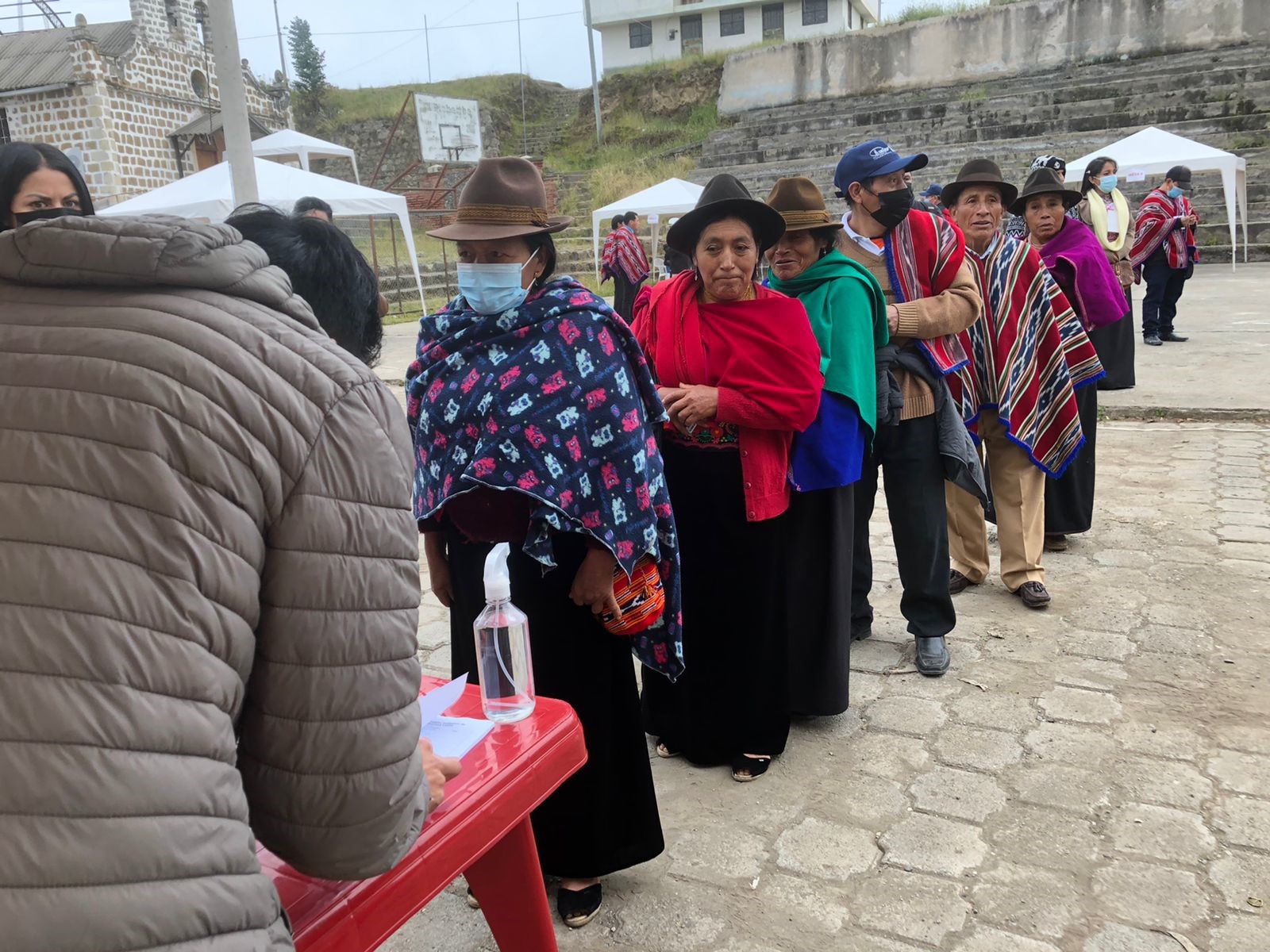Ancestral Freedom and Community Democracy in Ecuador: The Case of Cacha

The presence of 14 nationalities and 18 Indigenous Peoples in Ecuador makes it a multicultural and multiethnic country. This creates a competitive advantage through diversity for development, not only in terms of economic growth but in political and social development.
Cacha, in the province of Chimborazo, stands out as an ancestral community of the great Puruwá Nation. Since 1979, Cacha has sought a formally recognized ancestral electoral code within the country’s national electoral code (the Democracy Code), which is governed by the principles of the Andean cosmovision. The principles are founded on the people’s idea and appreciation of the world and vindicating the defense of their rights and beliefs, which have been partially achieved over more than four decades. The Puruwá Nation has maintained their independence over the years, always abiding by their traditions and customs. In this context, the legal recognition and protection of the Cacha community’s liberty and autonomy would codify this tradition.
The community has been practicing free, fair, and transparent elections for local authorities every two years, with simple but effective regulation on the process. Ancestral rules such as alternation and re-election only after eight years, are among other aspects that promote youth leadership in the community. After 42 years of implementing these democratic practices in an independent and self-regulated manner, the citizens of Cacha want their community electoral process and the constitutional right that protects them to be recognized in the Democracy Code of Ecuador (Electoral Law).
One of the International Republican Institute’s (IRI) areas of technical assistance in Ecuador is to strengthen the processes of free and transparent democratic participation, where citizens can elect representatives that embody their needs. IRI has been a bridge between the community, the National Assembly, and the National Electoral Council to make this reform a reality.
IRI has been working with Rosa Ponce, who is focused on the defense of human rights, and Voices for Democracy (Voces por la Democracia), an IRI-supported consortium of civil society organizations. Alongside partners, IRI is working toward the formal recognition of the ancestral electoral beliefs and practices of Cacha in the Democracy Code through a regulation on the rights of participation and the designation of internal authorities and candidates for popular elections. To achieve this goal, the organizations have implemented a series of workshops and working groups, held in Spanish and the indigenous Kichwa language, to promote participation in democratic processes within the Ecuadorian constitution and the Democracy Code, while respecting the sovereignty of indigenous peoples and nationalities.
These IRI-supported workshops collected information from community-elected political leaders to create a pilot plan to incorporate this regulation in the Democracy Code and analyzed strategies to continue with its development for the political autonomy of Cacha. Through these workshops, local leaders demonstrated their commitment to achieve this goal and improve political involvement.
Helping the indigenous community have a formally recognized ancestral electoral code is a way to make Ecuador more inclusive, support participatory democratic processes, and incorporate more voices to advance the country’s development. The right to autonomy is an important demand of Indigenous People, and the people of Cacha will be able to exercise this right within the constitutional framework. This effort will also promote greater national unity and participatory governance with the Cacha Government Council and the respective community governments established in the parish and province.
Finally, this pilot codifies electoral autonomy for the population of Cacha, building on decades of the community’s work. It will also serve as a model for other Indigenous communities in the country to assert their rights for autonomy and leadership. By validating these processes, IRI and its partners help to reduce the political conflict that exists in Ecuador.
Top